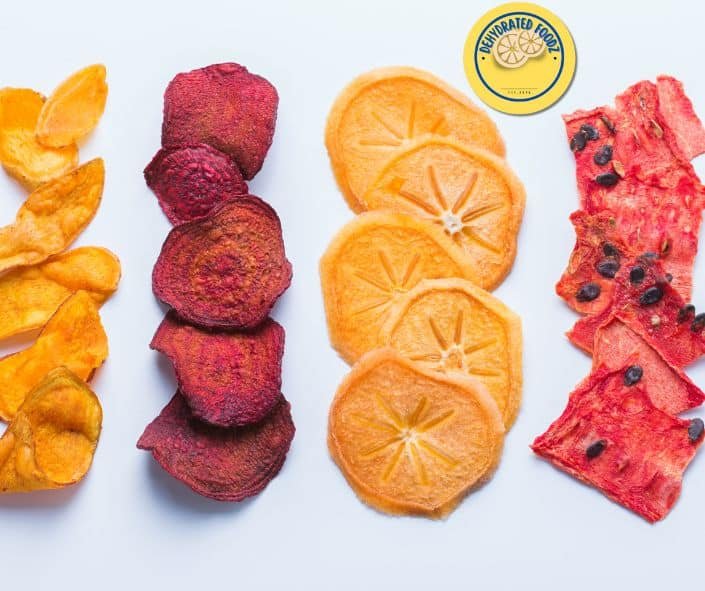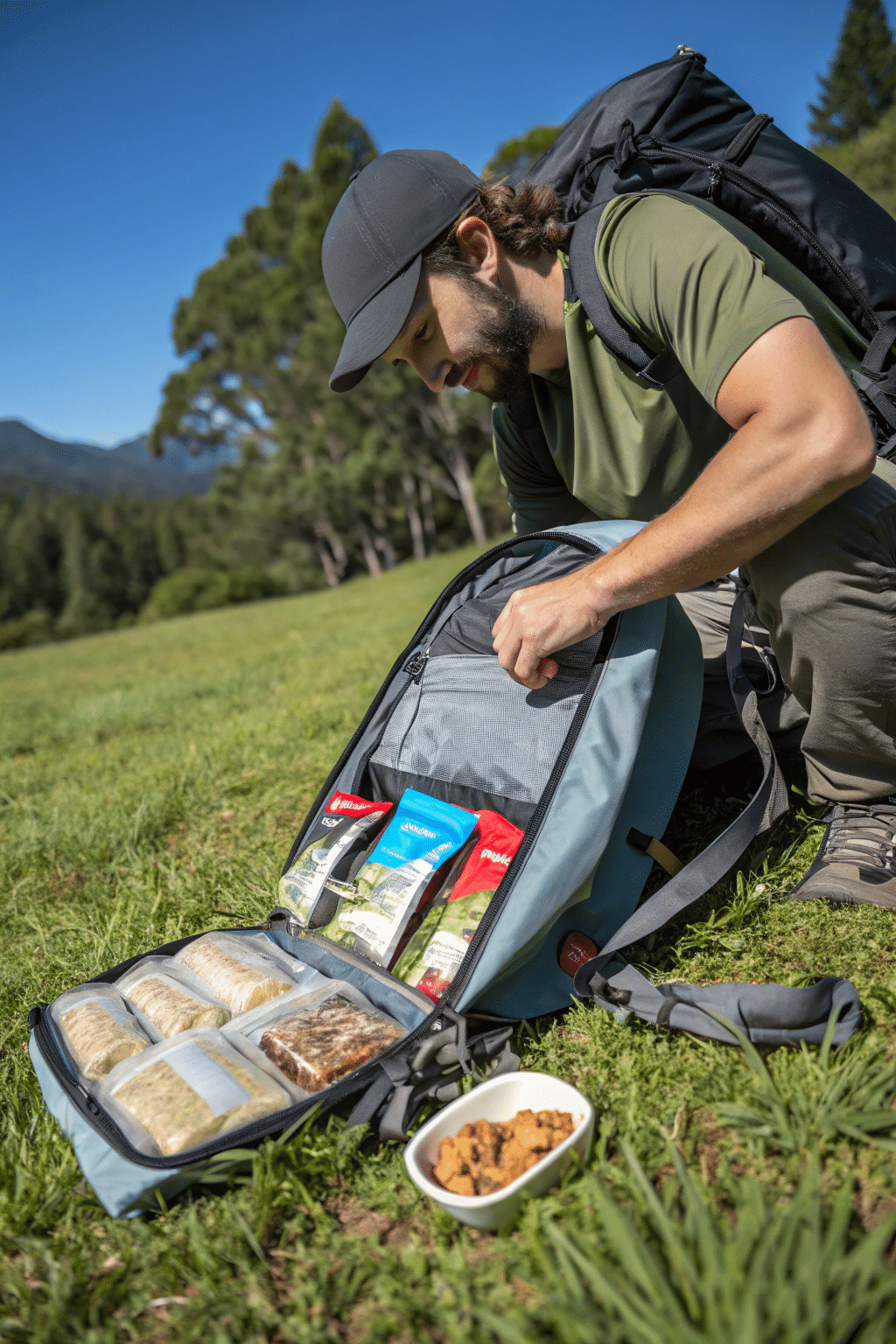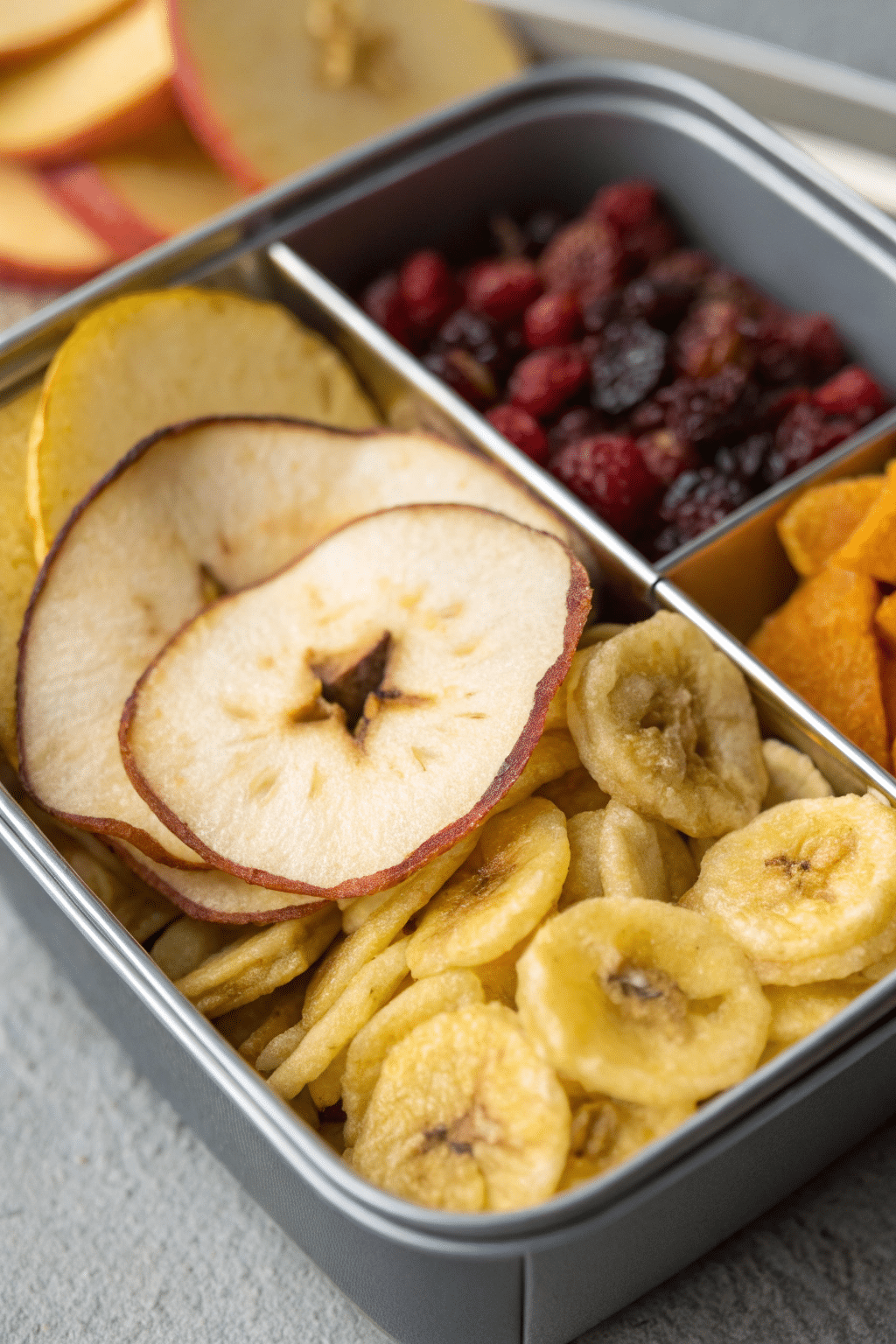


Why Dehydrate Food For Backpacking?
When planning for a backpacking trip, one of the most common questions is, “Why dehydrate food for backpacking?” The answer lies in the unique advantages that dehydrated food offers. This process, which involves removing water from food, creates lightweight, compact meals with a long shelf life. The size reduction process of dehydrated fruits, for example, makes them ideal for backpacking due to their reduced weight and volume. Moreover, these foods retain much of their original nutritional value, providing essential sustenance on the trail. Dehydrated food also presents a versatile range of meal options and can be more cost-effective than pre-packaged alternatives. In the following sections, we’ll explore in detail why dehydrating food for backpacking is beneficial.
Weight Reduction: Lighten Your Load
When backpacking, every ounce matters. The weight of your pack can significantly affect your energy levels and overall enjoyment of the trip. Dehydrated food is considerably lighter than fresh food because it has had its water content – a heavy component – removed. This reduction in weight means you can carry more food without adding unnecessary burden to your back, enhancing your comfort and endurance on the trail.
Dried fruit is also a convenient and nutritious portable snack option for backpackers, offering a concentrated source of energy and essential nutrients.

Extended Shelf Life: A Trustworthy Food Source
In the wilderness, access to fresh food is limited. Therefore, having a reliable food source that lasts is essential. Dehydrated food offers this benefit. The process of dehydration eliminates the moisture that bacteria and fungi need to grow, effectively extending the food’s shelf life. Proper management of the drying process is crucial to prevent spoilage and maintain flavor. This long-lasting nature of dehydrated food ensures a dependable food supply throughout your journey without worrying about spoilage.
Nutrient Preservation: Maintaining a Healthy Diet
Physical activities like hiking and camping require a nutritious diet. Fortunately, the process of dehydration retains most of the nutrients present in the food, including crucial vitamins and minerals. This feature ensures that even though you’re eating preserved food, you’re not compromising the nutritional value, keeping you healthy and energetic during your outdoor adventure.
Space-Saving: More Room for Essentials
Backpacking requires fitting all your necessities into one backpack, making space a valuable commodity. Due to the removal of water, Dehydrated food is compact and takes up less space than regular food. You can pack more food or allocate the saved space for other essentials. It also simplifies the task of organizing your backpack.
Versatility and Taste: A Plethora of Options
Eating the same type of food can become monotonous during a long trip. However, dehydrated foods can be rehydrated and incorporated into various dishes, providing plenty of meal options. Additionally, dehydration often retains much of the original flavor, ensuring that your meals are still delicious and satisfying.
Cost-Effective: Save Money, Eat Well
Pre-packaged dehydrated meals are available in the market but can be pretty pricey. A cost-effective alternative is to dehydrate your food. Not only does this save money, but it also allows you to control the ingredients in your meals. You can prepare your favorite foods healthily without any preservatives or unwanted additives.
Storage: Keeping Your Food Fresh
The quality and safety of dehydrated food heavily depend on proper storage. It’s crucial to store dry food in airtight containers or bags to prevent exposure to air and moisture, which can lead to spoilage. Properly stored, your dehydrated food can remain fresh and edible for an extended period, ready to fuel your next adventure.
Why Food Dehydration In General?
Dehydrating foods can provide a host of benefits: from reducing food waste to saving money, to adding a nutritious twist to your meals. Here are 16 great reasons why you should dehydrate your food right now!
- Cut Food Waste – Dehydrating excess produce is an excellent way to reduce food waste and preserve seasonal foods for later use.
- Nutritional Values – Dried fruits and vegetables can retain their nutritional value almost unchanged because the dehydration process removes only water without altering other components like vitamins, minerals, carbohydrates, proteins, or fats.

Dried food can last between five to ten years when correctly prepared and stored in airtight containers.
- Cost Savings – Growing and dehydrating your produce can save you money in the long run by eliminating unnecessary grocery trips and packaging.
- Solar** Drying** – For the most cost-efficient, eco-friendly, and energy-efficient way to dehydrate your food, consider using solar drying methods with no electricity required. Compared to solar drying, oven drying can be done using a home oven set to low temperatures around 140°F, but it has longer drying times and challenges in maintaining the correct temperature without cooking the food.
Sun drying is one of the oldest and simplest methods for dehydrating food, effective in hot climates and requiring minimal equipment.
- Variety of Food Options – You can dehydrate almost anything from fresh fruits and vegetables to ground beef or dried meals!
- Perfect for Backpacking – Dehydrated foods are lightweight, easy to carry, and perfect for backpacking adventures!
- Long Term Storage – Proper preparation and storage in airtight containers like mason or glass jars allows you to store dry food for years without worrying about spoilage.
- Dehydrator Trays – Electric dehydrators come with multiple trays and can dry several different foods simultaneously.
- Easy Set Up – Dehydrators are easy to set up and use, allowing even the busiest of us to get creative with meal prep!
- Preserving Healthy Fats – During dehydration, healthy fats in food will remain intact, and you’ll reap the rewards of their nutritional value when consuming your meals later.
- Delicious Snacks – Dehydrated foods are the most flavorful and tasty snacks you can prepare.
- Rehydration – Most dehydrated food can be rehydrated to return its original texture, making it a great option for quick on-the-go meals!
- Zero Waste – Since dehydrating removes excess water from food, what’s left are minimal amounts of waste that can be composted or reused in other recipes.
- Cost Effective – Dehydrating food eliminates the need for preservatives, excess packaging, and processing that can drive up grocery costs. In addition to saving time in the kitchen, you’ll save money on groceries too!
- Versatile – You can dehydrate most types of food you like, whether it be fruits, vegetables, or even meat and seafood! There are endless possibilities when it comes to creating flavorful snacks and meals with a dehydrator.
- Fun & Creative – Dehydrating food is a fun and creative way to explore the world of culinary delights! It’s a great way to get your family involved in meal-prepping too. With dehydration, the possibilities are truly endless!
Benefits of Dehydrating Food
Dehydrating food offers numerous benefits, making it a popular method of food preservation. Here are some of the advantages of dehydrating food:
Weight Reduction
One of the standout benefits of dehydrating food is the significant reduction in weight. This is particularly advantageous for backpackers, campers, and hikers who need to carry lightweight food supplies. By removing the water content, dehydrated food can be up to 90% lighter than its fresh counterpart. This makes it an ideal choice for outdoor enthusiasts who need to pack efficiently without compromising on the quantity or quality of their meals.
Nutritional Value
Dehydrating food is an excellent way to preserve its nutritional value. The dehydration process removes water, which can lead to spoilage and nutrient loss, but it retains up to 90% of the original nutrients. This means you can enjoy healthy, nutrient-rich meals even when you’re far from home. Whether you’re preserving fruits, vegetables, or meats, dehydrated food ensures you maintain a balanced diet without sacrificing essential vitamins and minerals.
Cost-Effective
Dehydrating food is not only practical but also cost-effective. It eliminates the need for refrigeration, which can save on energy costs and reduce food waste. Additionally, dehydrated food can be stored for long periods, reducing the frequency of grocery shopping trips. By dehydrating your own food, you can take advantage of seasonal produce, buy in bulk, and preserve it for future use, ultimately saving money and reducing waste.
Dehydration Methods
There are several methods of dehydrating food, each with its own advantages and disadvantages. Here are some of the most common methods:
Air Drying
Air drying is a simple and cost-effective method of dehydrating food. It involves placing food in a single layer on a wire rack or tray, allowing air to circulate around it. This method is ideal for delicate foods like herbs, fruits, and vegetables. Air drying can be done indoors or outdoors, depending on the climate and humidity levels. It’s a natural and energy-efficient way to dehydrate food, though it may take longer than other methods.
Final Say on Dehydrated Foods
So, why dehydrate food? Let’s wrap this up!
Isn’t it just fantastic that we can extend the life of our fresh produce while preserving all those vital nutrients and flavors? And with a simple gadget like a , you can turn your favorite fruits and veggies into tasty, easy-to-carry snacks. Perfect for those who are always on the move, right?
But there’s more! From crafting your own jerky or fruit leathers to prepping lightweight camping meals – the possibilities are endless. Ever considered how much easier it is to pack dehydrated meals for your hiking trips instead of heavy cans or perishables?
And let’s talk savings! Dehydration means less food waste and the ability to bulk buy when produce is in season. It’s a win-win for your wallet and your pantry! With so many brands making user-friendly and efficient dehydrators, it’s never been a better time to get started.
So, what are you waiting for? Jump into the exciting world of food dehydration and discover a whole new realm of culinary creativity!

